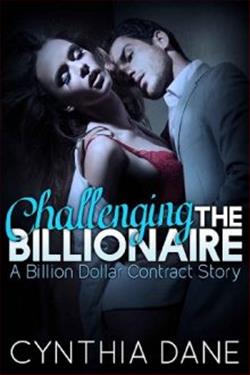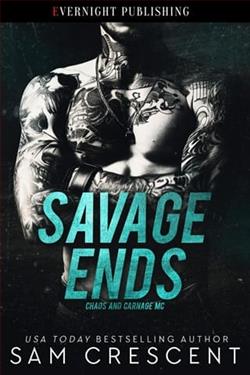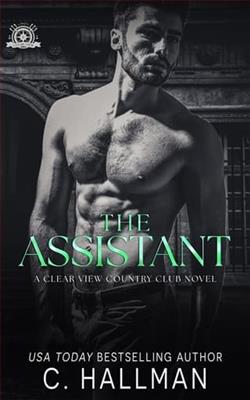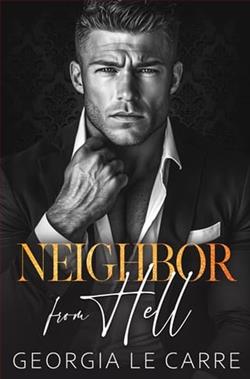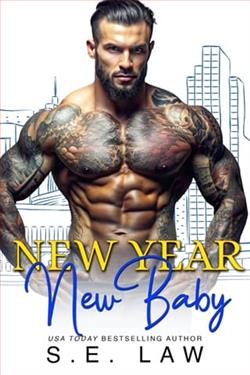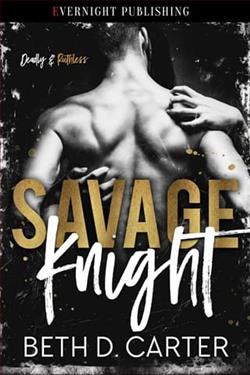Page 75 of Shake the Habit
Aunt Paula had things to say about his relatives, too, things that surprised me even more than about the would-be king McCourt. “You resemble your grandfather,” she mentioned. “Walter Woodson. I remember him coming to our high school when your mother won a medal for a science fair experiment that she’d done. He was a very handsome man,” she continued, examining Caleb closely. He blushed again.
“What about my grandmother?” he asked. “Did you know her, too?”
“As I recall, she didn’t leave the house much. I’m not sure why that was, if it was natural shyness or because something was wrong. Maybe that was what made Lara-Lee…you know, theway she was.” She patted his arm. “Since you caught my niece’s eye, I’ve been thinking a lot about those days. I talked to some of my old girlfriends from back then, too, the ones who aren’t dead yet.”
“Aunt Paula…” I murmured.
“They remembered your mother as haughty, rude, and supercilious,” she said.
“That sounds about right.” Caleb sighed.
“But now that I’m older, I have a different perspective on her behavior. I’ve been thinking that she was an unhappy girl. Lara-Lee was probably lonely,” Aunt Paula told us. “She didn’t have any friends and she didn’t have any boyfriends, either.”
“I think she was very lonely,” he agreed. “She never understood how to treat people, that you have to give love to get it. Kayleigh, don’t get upset.”
He hadn’t had to look in the rearview mirror to know that I was. “I’m just sorry that you had to grow up with her not giving you any love,” I said.
“It was probably why she took up with that man,” my aunt mentioned off-handedly.
“What man?” I asked sharply. “What did you find out?”
Aunt Paula twisted in the car seat to look back at me and raised her eyebrows. I didn’t apologize for my tone, so to make sure I knew that she didn’t appreciate it, she frowned and glared at me as she answered.
“Lara-Lee made a special friend at one point,” she said, but then turned apologetically to Caleb. “I mean, she was seeing someone romantically.”
“I understood that,” he replied. “What man?”
Before she answered his question, she shook her head. “You know, I did her a disservice and so did the other girls at our school. We weren’t very nice to her.”
“If she acted the same way that she did as an adult, then I’m sure that she wasn’t very nice to anyone herself,” he pointed out, and she shrugged slightly.
“Well, that’s true. Loneliness and sadness are an explanation rather than an excuse.”
“What about the man?” I pressed. “What were you saying about her taking up with someone?”
There was more story to tell, first. As she’d already mentioned, Aunt Paula had been asking people for their memories of Lara-Lee Woodson—she’d been asking many people. She’d attended her regular meetings of the native plant society, the library guild, her birding group, and the knitting club, but she hadn’t learned anything new or significant. “I decided to see what the quilters thought,” she continued. “I haven’t been around in a while but they’re a very nice group of ladies. They never say a word about how poor my hand-sewing is. It’s just terrible.”
“Aunt Paula, what did they say about the man?” Caleb asked.
Well, she was getting to that. “The Woodsons had a housekeeper, the same woman for years. Her niece is a quilterand she told me that your mother never got along with her parents. They were disappointed that she didn’t want to follow a more traditional path, and no one was surprised when Ellie moved away and never came back. ‘Ellie’ was what they called her, because of the two Ls in Lara-Lee.”
“She had a nickname?” he wondered. He sounded amazed. “I never thought of someone knowing her well enough for that.”
“Her father always kept tabs on her, especially after her mother died. He was almost in his nineties when she got pregnant and he was very upset about it.” She paused. “I’m sorry,” she told Caleb.
“That’s all right.”
“He made it his business to find out who the father was,” my aunt went on. “It was a man from Virginia who had come to work with Lara-Lee on her plants, something about a tree she was trying to develop. He had left behind a wife.”
“He was married,” Caleb stated, and Aunt Paula apologized again.
“He didn’t want to get a divorce and he wasn’t interested in being a father. He didn’t have any other children, either. As far as your grandfather knew, their relationship ended when he went back to Virginia and Lara-Lee never had any more contact with him.”
I thought about all the papers she’d saved in her desk, glove box, and bedroom, all the irrelevant scraps that she’d never seen fit to recycle or throw away. No, there hadn’t been anything from a man in Virginia, not a love letter or a message about his son.
“He’s deceased, now,” Aunt Paula said. “I looked him up. He was even older than your mother at the time.”
“What was his name?”








